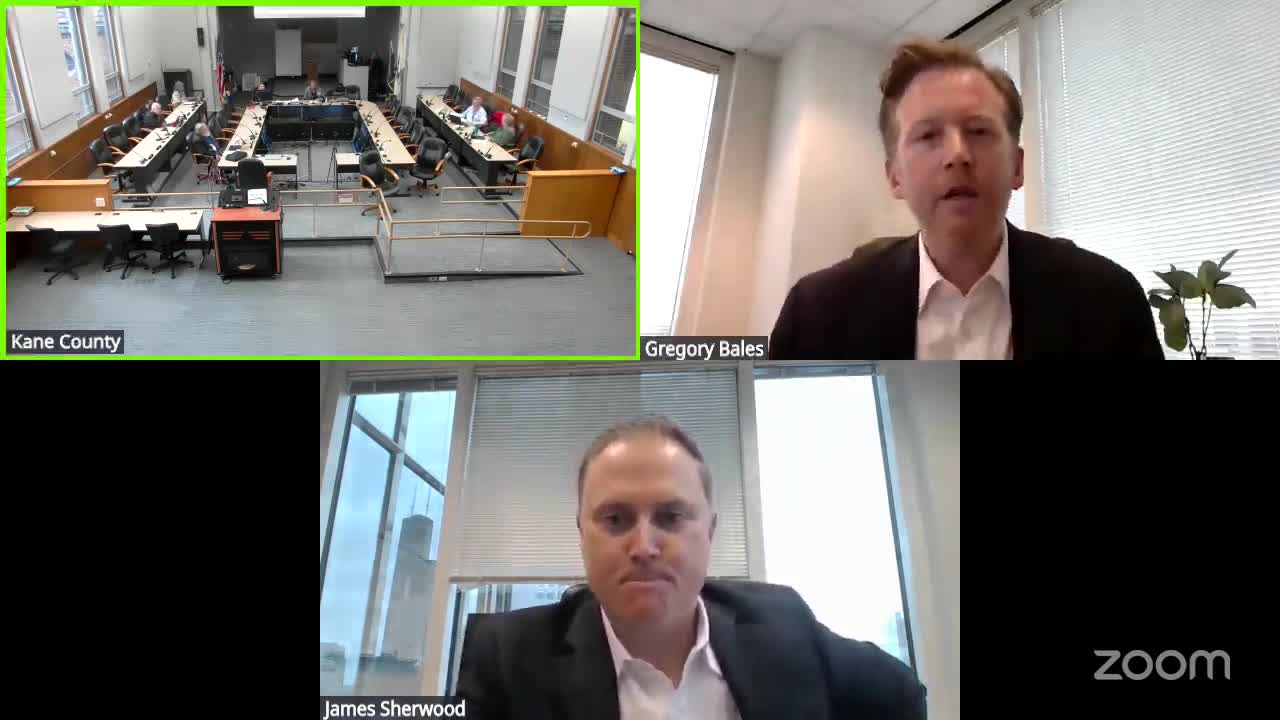County staff brief committee on federal shutdown, transit funding cliff and proposed state 'solar' changes
Get AI-powered insights, summaries, and transcripts
Subscribe
Summary
Legislative staff and outside counsel updated the Kane County Legislative Committee on the federal government shutdown, a possible $1.5 billion transit funding package and a proposed state-level "solar bill of rights" that committee members said could limit local zoning control for renewable projects.
County legislative staff and outside counsel briefed the Kane County Legislative Committee Wednesday on several fast-moving issues in Washington and Springfield that could affect local services and land-use authority.
Greg Bales (staff) summarized federal developments, including a continuing shutdown of the federal government that began Sept. 30, 2025, and noted potential impacts such as furloughs of federal staff, pressure on air travel and the possibility of SNAP benefit interruptions before Thanksgiving. "There's just a lot of unknowns, and we're a little bit in uncharted territory," Bales said.
James Sherwood, a lobbyist with Maguire Woods, focused on matters in the Illinois veto session next week. Sherwood identified transit consolidation for Northern Illinois as a top county priority; a Senate bill from May included $1.5 billion in new transit funding but raised governance concerns because the version then under consideration would allow 15 of 20 votes on the new Northern Illinois transit board to carry measures — a threshold county officials said could allow Chicago and Cook County to override collar counties. "We have suggested very specific legislative language that we could agree to," Sherwood said, and added that collar counties were coordinating to secure an equitable voice on governing boards.
Sherwood also described a late-filed energy amendment addressing battery storage, powers for the Illinois Commerce Commission, and a measure the briefing described as a "solar bill of rights." According to Sherwood, the amendment would include provisions limiting local zoning authority for solar projects and could send disputes between counties and renewable developers to an adjudicatory process at the Illinois Commerce Commission. "I think it is going to be a rubber stamp and the county's hands will be tied," Sherwood said when asked about the practical effect of the legislation.
Committee members repeatedly expressed concern about possible state preemption of local zoning for renewable energy, noting Kane County's existing ordinance and ongoing litigation in other counties. Chair Michelle Gumbs said county staff would draft letters and coordinate with the Illinois Association of County Board Members and the Illinois State Association of Counties (ISACO) to oppose preemption and to seek support from other counties.
Other topics discussed included potential property-tax legislation that could affect tax-sale litigation and the senior freeze, reassessment questions for battery-storage and solar facilities, and continued discussion of energy price spikes and proposals to address generation shortfalls. Committee members asked staff to continue monitoring the veto session and to keep the committee apprised of any language that would alter local control or taxation of renewable-energy facilities.
Sherwood and staff said the legislative agenda remained fluid and that some items might be deferred to the spring if a stop-gap measure passes in Springfield.
The brief ended with committee members agreeing to draft a county letter reaffirming local control over zoning for renewable projects and to coordinate with other counties and associations on the issue.
